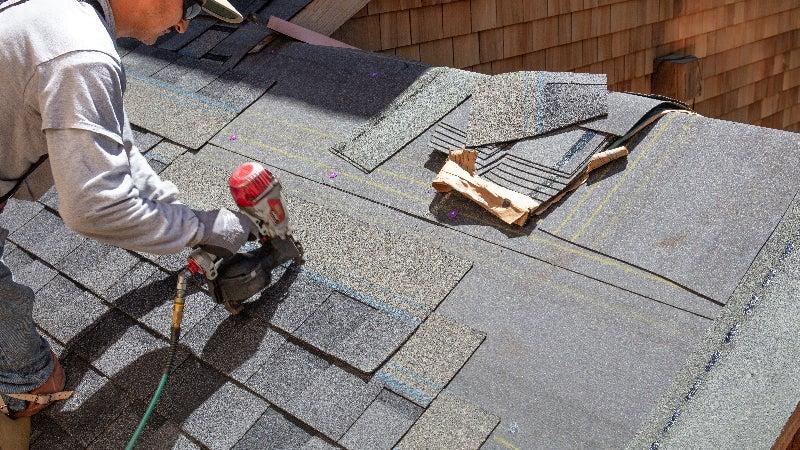Roof replacement is a significant home improvement project that not only enhances the aesthetic appeal of your home but also ensures the protection of your property. One of the key questions homeowners often have is, “How long does it take to replace a roof?” The answer to this question depends on several factors, which we will explore in this article.

Understanding the Roof Replacement Process
Before delving into the time it takes to replace a roof, it’s crucial to have a general understanding of the roof replacement process. Roof replacement typically involves the following key steps:
- Roof Inspection: The process begins with a thorough roof inspection. This step helps identify the extent of damage, areas in need of repair, and the type of roofing material that will be required.
- Tear-Off: In many cases, the existing roofing material needs to be removed before installing a new roof. This is known as the tear-off process and involves stripping the old shingles or other roofing material down to the roof deck.
- Repairs: If any damage is found during the inspection or tear-off process, it must be repaired. This includes addressing any issues with the roof deck, underlayment, or flashing.
- New Roof Installation: After the repairs are complete, the new roofing material is installed. This includes underlayment, shingles or other roofing material, and flashing.
- Cleanup: Once the new roof is in place, a thorough cleanup is performed to remove debris, nails, and any remnants from the old roof.
- Inspection and Quality Check: A final inspection is conducted to ensure the new roof meets quality standards and specifications.
Factors Affecting Roof Replacement Time
The time required for roof replacement varies based on several factors:
- Roof Size: The size of the roof is one of the most significant factors. Larger roofs naturally require more time to replace than smaller ones.
- Roof Complexity: The complexity of the roof, including its pitch, the number of valleys, and the presence of dormers or other architectural features, can impact the time required.
- Weather Conditions: Weather plays a crucial role. Inclement weather, such as rain or high winds, can delay the project. Roofing is typically not done in wet or windy conditions for safety reasons.
- Roofing Material: The type of roofing material chosen affects the time it takes to complete the project. Asphalt shingles install quickly, while slate or clay tiles demand more time and care.
- Tear-Off or Overlay: If the old roofing material needs to be torn off before installing the new roof, it adds time to the project. An overlay, where the new material is installed directly over the old, is generally quicker.
- Crew Size: The size and efficiency of the roofing crew can influence the time needed. Larger crews can complete the work more quickly.
Average Timeframes for Roof Replacement
On average, a roof replacement project can take anywhere from one to several days. Here are some general timeframes based on common factors:
- Small, Simple Roofs: A small, uncomplicated roof with a straightforward design and minimal tear-off work can often be completed in a day or two.
- Medium-Sized Roofs: For an average-sized home with a moderately complex roof, the project might take two to three days.
- Large, Complex Roofs: Homes with large, intricate roof designs can take several days to a week or more to complete.
- Unforeseen Issues: Significant unexpected damage from the inspection can extend the project timeline.
Conclusion
How Many Hours Does It Take To Replace A Roof? The time for roof replacement varies based on factors like roof size, complexity, weather, and chosen materials. While it’s essential to have an estimate from your roofing contractor, it’s equally crucial to prioritize quality workmanship over speed. A well-installed roof is a long-term investment in your home’s protection and value, worth the time for proper installation.



Leave a Reply